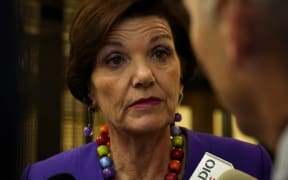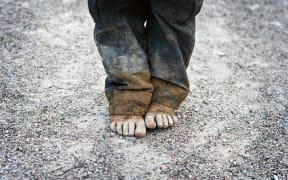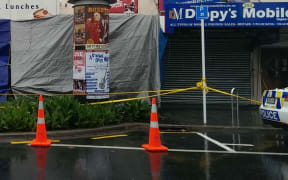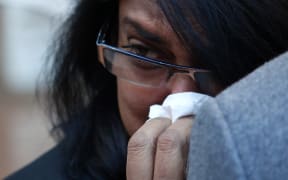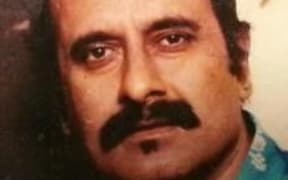Students flagged to social services as being in urgent need of help can wait up to three months to be seen, if at all, a school association says.
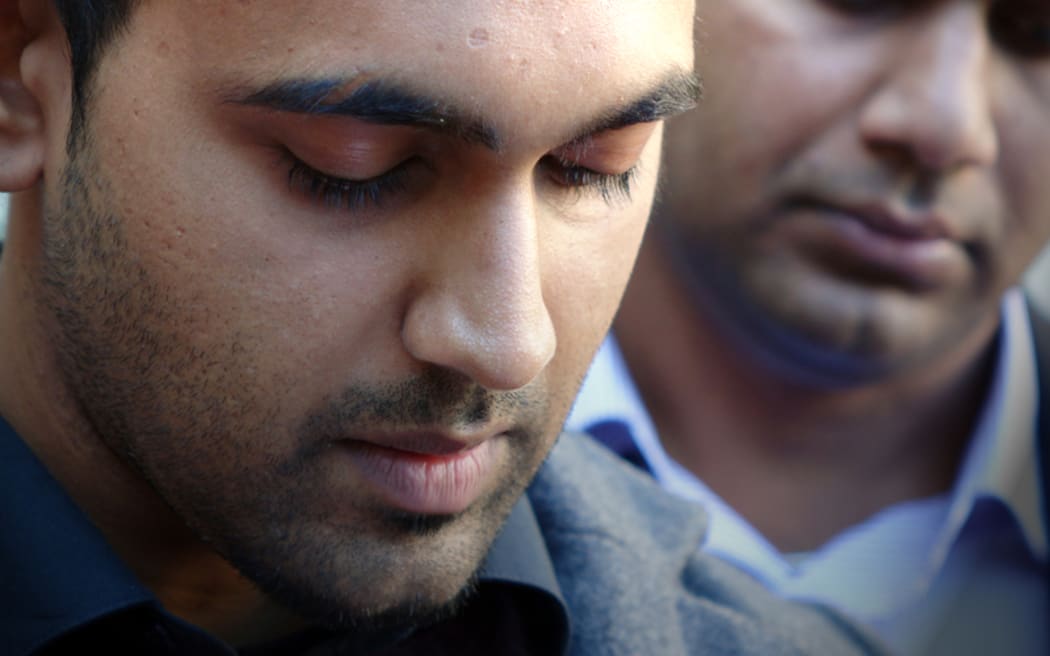
Shivneel Kumar, son of Arun Kumar, spoke outside the High Court in Auckland about the family's despair at the verdicts. Photo: RNZ / Kim Baker Wilson
During the trial of two boys over the killing of Auckland dairy owner Arun Kumar, the Auckland High Court heard that one had been referred to Child, Youth and Family about 20 times.
A 14-year-old was found guilty of the manslaughter of Mr Kumar and a 13-year-old was found not guilty.
Authorities knew the pair's problems included drug use at home, gang-affiliated parents, and family violence.
Doug McLean, president of the New Zealand Association of Intermediate and Middle Schooling, said troubled children were put at risk by the delays.
Children with problems were being left more damaged if they did not get help straight away, he said.
"The kids got issues, quite serious issues, and they need to be dealt with immediately. But it can take six weeks, two months, three months, which is too far down the track.
"Delays can be very damaging to the child, behavioural and issues like that can become more and more ingrained."
Mr McLean said he had worked all over New Zealand, and there were regional differences in the quality of social service action.
He was not confident all referrals were followed up in the first place.
"There's not a huge amount of confidence, but the real issue is accessing the right help, the right support.
"Sometimes they make it very hard for us, in the sense that hard to find, hard to bring them on board, hard to get past all the criteria."
Violence Free Waitakere is one of the agencies that works in the area, and said crime had in fact dropped dramatically thanks to local agency work.
But chairperson Geoff Bridgeman, also a university lecturer in social practice, said Government funding cuts were still hurting.
"It's really hard. Partly because the Government hasn't got a clear idea of how community groups can be a major player in solving these issues.
"The programmes it is running are poorly evaluated - we've got a limited understanding of what we do."
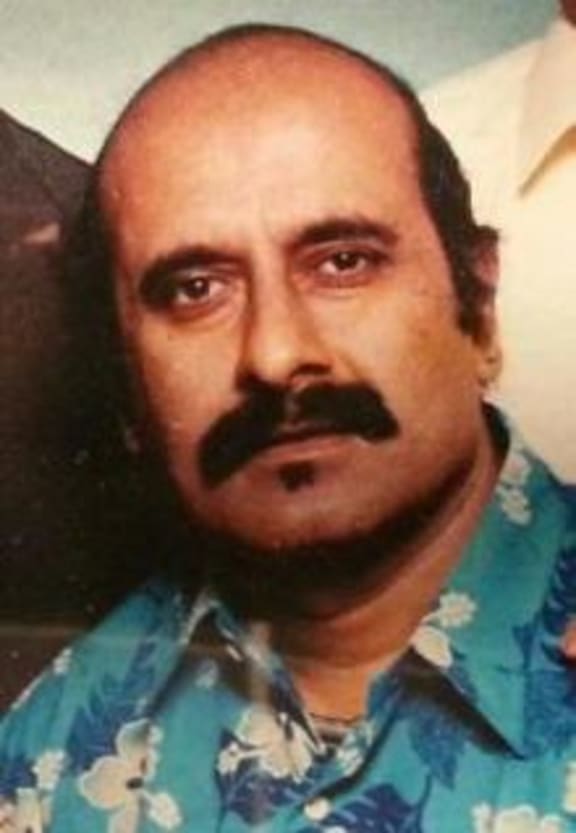
Arun Kumar. Photo: NZ POLICE
Te Whanau o Waipareira works with at-risk children in West Auckland.
Huia Busby, general manager of the group's social and justice division, declined to talk about its involvement with the boys in the Kumar case, citing their age, and saying that it would be a confidentiality breach.
But she said it was not easy for community agencies to make a difference if families pushed them away.
"It's quite hard for NGOs to be involved with family if family don't want them there," she said.
"Although we have 50 contracts, for the majority of them, we require family consent to work with them, we don't have statutory powers for them to work with us. Because it's voluntary, we can't always catch all of them."
Child, Youth and Family and the Auckland District Health Board also declined to answer questions about how they dealt with the boys, both of whom have name suppression.
Child Youth and Family said all referrals were initially dealt with between 24 hours and four weeks, and how they are dealt with depended on their severity.
